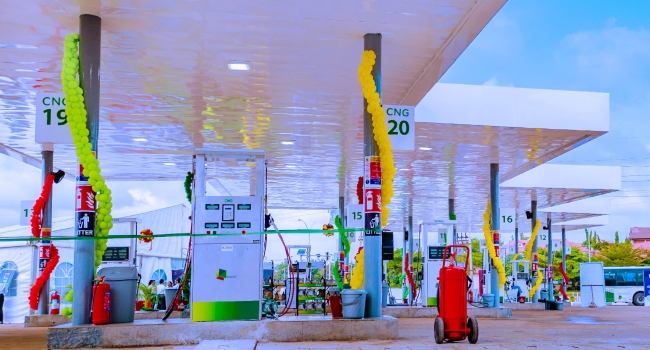The Nigerian National Petroleum Company Limited (NNPC) has ramped up its efforts to boost Compressed Natural Gas (CNG) availability across Nigeria, acquiring equipment to set up 40 new CNG stations nationwide. This move is part of the Federal Government’s broader strategy to roll out 100 CNG stations within the next six months.
At a recent event in Ogun State, the CEO of the Presidential Compressed Natural Gas Initiative (PCNGI), Oluwagbemi Michael, highlighted the progress made so far. He disclosed that NNPC has already established 12 CNG stations over the past year, with six in Abuja and six more in Lagos, addressing the growing demand for alternative fuel options.
Nigerians have been clamoring for more CNG refueling stations due to the limited availability, which has slowed down the transition from petrol to CNG. However, Oluwagbemi assured that the government is actively expanding infrastructure. He revealed that N122 billion has been allocated to six private companies to support the CNG distribution chain, marking a significant step toward nationwide coverage.
“NNPC has acquired equipment for 40 additional stations across Nigeria, and private companies like Bovas and NIPCO are also investing heavily, adding over 20 more stations to the network,” Oluwagbemi said. “In just one year, we’ve grown from 20 to 50 stations, and we expect that number to double in the next six months.”
Read also: Nigeria Customs gets IPRA recognition for strategic communications campaign
To further drive CNG adoption, the Federal Government has launched an initiative to distribute one million CNG conversion kits to commercial drivers. This is expected to generate demand for up to 1.5 million more CNG-powered vehicles, attracting investors and bolstering the country’s alternative fuel infrastructure.
Oluwagbemi explained that the government is also working with the Nigerian Midstream and Downstream Regulatory Authority to fast-track approvals for retrofitting existing petrol stations with CNG add-ons. “The NNPC is working on converting 40 more stations, which will be operational next year,” he added.
One of the major appeals of CNG is its potential to drastically reduce fuel costs for Nigerians. Oluwagbemi pointed out that a credit scheme has been set up to make it easier for individuals to convert their petrol-powered cars to CNG. “With CNG, fuel expenses can drop from N50,000 a week to just N5,000 or N10,000. The savings can then be used to finance the conversion over time,” he explained.
The PCNGI boss reassured Nigerians that the government is committed to ensuring CNG becomes a reliable and affordable alternative to petrol, emphasizing that it is both safer and cheaper.






